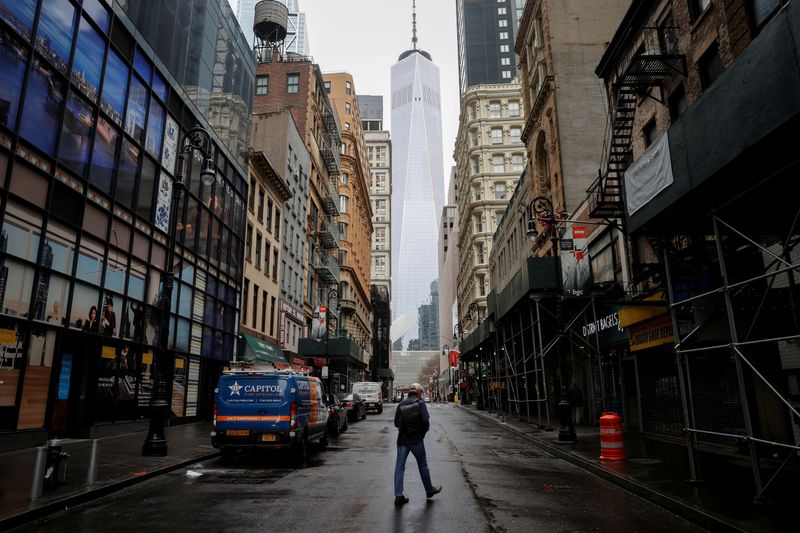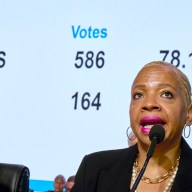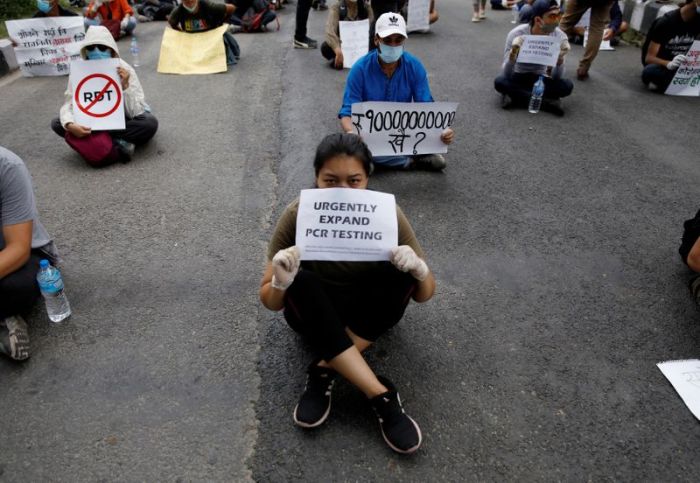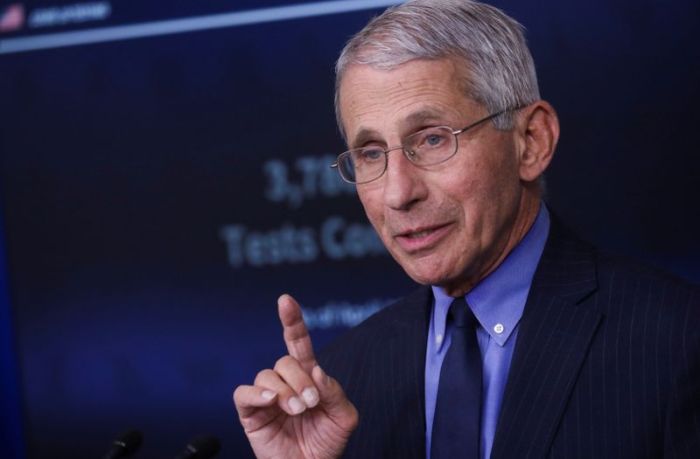SINGAPORE (Reuters) – A second straight day of record new coronavirus cases in Beijing and a spike in infections across a swathe of the United States has dented investor sentiment and sent stocks sharply lower on Monday.
Here are analyst views on the shifting mood related to the COVID-19 pandemic and the outlook from here:
HAO HONG, HEAD OF RESEARCH, BOCOM INTERNATIONAL, HONG KONG:
“You basically now have a situation where, as the countries ease the lockdown, the number of cases will go up. In a market, which was already in the over-bought zone, any news on that front can trigger a sell-off.
“It’s unrealistic for the markets to factor in a V-shaped recovery, look at the Chinese numbers today … retail sales are still down.”
LEE WON, ANALYST, BOOKOOK SECURITIES, SEOUL:
“The fall is heavier in South Korea today because second-wave concerns added to the escalating of tensions with North Korea. North Korea made it clear its next step will be taken by the military, so there’s certainly heightened geopolitical risks.
“More may dump shares in the coming days as second-wave fears in China and the U.S. are clouding the outlook. South Korea may or may not prove resilient again, but certainly more and more are bracing for longer-term uncertainties.”
JAMES MCGLEW, EXECUTIVE DIRECTOR OF CORPORATE STOCKBROKING, ARGONAUT, PERTH:
“This is a healthy correction, but I feel there is some way to go as investors try and quantify what lies ahead.
“The market had run up sharply since hitting a low in March and that was based on a lot of optimism about the economy. But now investors are getting a reality check. Markets are now realising the COVID situation is not under control yet.”
MASARU ISHIBASHI, JOINT GENERAL MANAGER OF TRADING, SUMITOMO MITSUI BANK, TOKYO:
“Markets have ignored the number of new cases and rallied until now because everyone jumped on the economic recovery bandwagon. Now positions are so long that people are more likely to react to negative news, like what is happening in Beijing.
“Another factor to consider is volatility has been rising in some markets, which supports risk-off trades. This means sell currencies, sell stocks and buy bonds. In addition, worries about Brexit are starting to return, and this is not fully priced in. There are more downside risks for financial markets.”
STEVEN LEUNG, EXECUTIVE DIRECTOR FOR INSTITUTIONAL SALES, UOB KAY HIAN, HONG KONG:
“The market was pricing in a V-shape recovery. This can’t be the case if there is indeed a second wave, the best scenario is U-shaped. There will be a bigger impact this time on all those stocks tied to the expected economic recovery such as travel, hotel, if we see a second wave.
“These past few trading days, when there were uncertainties around the epidemic, the dollar index has been bouncing back. That means pressure on the Asian currencies. Capital may leave Asia for the U.S., that is negative for Asian markets.”
MOH SIONG SIM, FX ANALYST, BANK OF SINGAPORE:
“Usually after such a long run, there’s a pause. There’s a lot we don’t know about the virus itself, and the market is grappling with that uncertainty. But we are now better prepared. We know what sensible things to do.
“So do we get a double dip? I’m not so sure. I tend to think its a more of a scenario where the recovery might not be as strong as what is hoped for. The market is saying a V-shape, the economy is saying a U and the market is beginning to think it’s not a V, it’s more of a U.”
(This story refiles to fix typographical error in reporting credits)
(Reporting by Cynthia Kim and Jihoon Lee in Seoul, Swati Pandey in Sydney, Noah Sin and Sumeet Chatterjee in Hong Kong, Stanley White in Toyko and Tom Westbrook in Singapore; Editing by Himani Sarkar)



















